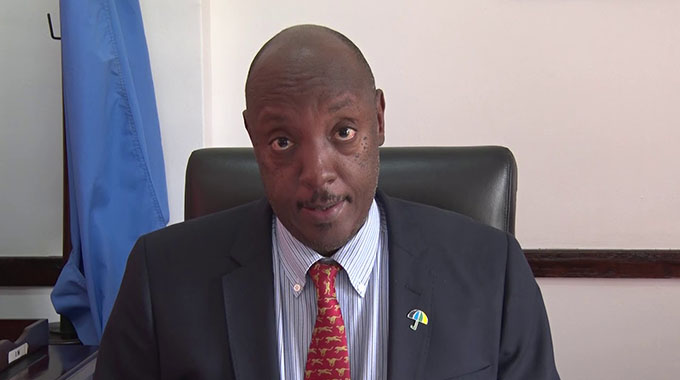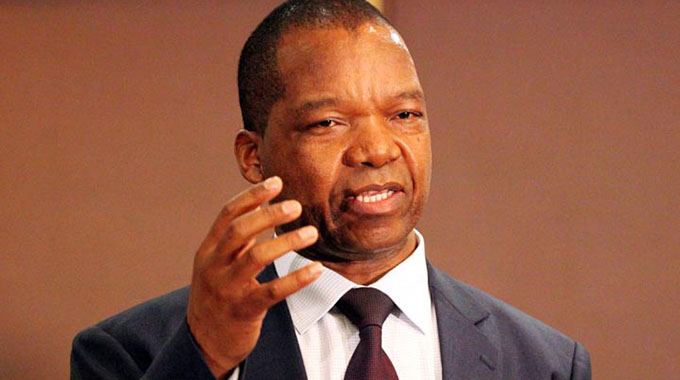Experts raise red flag on demonstrations

Herald Reporter
AS Covid-19 cases gain traction in Zimbabwe with infections nearing 1 000, health experts have warned that any let-up, including the holding of demonstrations could fuel the spread of the pandemic with possible deaths.
The grim warning from experts comes at a time when Covid-19 cases on Wednesday climbed to 885 after 98 new infections, including 47 local transmissions of the disease were recorded.
It also comes when opposition parties, in total disregard to the lockdown measures that were enacted to curb the spread of the pandemic — that has no known cure but can be prevented through observing social distancing, wearing face masks, and limiting public gatherings — are planning mass demonstrations on July 31.
Presently, Zimbabwe is under lockdown level 2, but the spread of the disease, especially in populous urban settings could require tougher measures for total containment, experts said.
The experts, who cited complacency as one of the major drivers of the increase in infections, said authorities should act to ensure that people do not mix and infect each other, something that is unavoidable during mass demonstrations.
World Health Organisation (WHO) country representative Dr Alex Gasasira said the control of Covid-19 requires everyone’s contribution including adherence to measures and regulations that were put in place by the Government to curtail the spread of the global pandemic.
“Everybody else must continue to implement the prevention measures; physical distancing, hand washing, limiting movement to only that which is most essential. If we implement all these together, we should be able to limit the number of cases we are seeing in Zimbabwe,” said Dr Gasasira.
With noticeable laxity on the ground as Zimbabweans lose their guard against the flue-like disease, Dr Gasasira said there was need to “work harder” so that everybody is aware of their role in combating the pandemic.
“We need to build the capacity for timely detection, isolating anybody who might be infected and ensuring that the close contacts are identified and quarantined. That has been successful in some countries and that is the capacity we know is being built in Zimbabwe,” said Dr Gasasira.
On his part, Health and Child Care Deputy Minister Dr John Mangwiro warned against taking part in any high risky public gatherings that would endanger the health of participants regardless of political persuasion or grievances.
“We do not want people to crowd, it is dangerous. We know crowding makes the disease much easier to spread. People will greet each other, they may not necessarily observe social distancing so it might really be a danger in that cases might actually spike from that activity. We would really discourage such things because definitely the spreading of the virus will be quite enhanced,” said Dr Mangwiro.
Although Zimbabwe has recorded nine deaths, its neighbours like South Africa have been hit hardest, with authorities across the Limpopo preparing millions of graves in the wake of a rise in infections in that country. As such, Harare City Council director for Health Services and Public Health Specialist Dr Prosper Chonzi said in the absence of a cure or vaccine, the only instrument to combat Covid-19 was prevention.
Dr Chonzi said Zimbabwe’s health systems were generally weak and might not sustain huge numbers of cases requiring admission hence the need to maximise on the prevention aspect.
“People have relaxed. They think that the worst is over yet it is not yet over. Some are only putting on masks to pass through a checkpoint, some have even started throwing parties and all this could throw our cases to the wind.
“Yes, our fatality rate is low but our health systems are also weak and we cannot afford so many admissions. We should rely solely on prevention,” said Dr Chonzi.
He said while the country cannot continue to be in lockdown forever, opening up should be in phases to avoid a catastrophe.
Community Working Group on Health executive director and public health advocate Mr Itai Rusike described the surge in cases, both local transmissions and among returnees, as “deeply worrying”, especially considering that the country is easing the lockdown.
“Zimbabweans need to embrace the new normal and the Government should fully enforce the compulsory wearing of face masks, observing social distancing and continue practising high levels of personal hygiene, avoiding unnecessary travel and crowds,” he said.
Mr Rusike said until a vaccine is found, these measures remain critical in suppressing transmission of Covid-19.
On the other hand, the Africa Centres for Disease Control and Prevention (CDC) also urged member states to up the ante in the fight against the global pestilence after confirmed cases clambered to 512 039 in a very short space of time on the continent.
CDC head Dr John Nkengasong said in a virtual meeting yesterday that African countries need to scale up Covid-19 testing, in light of the bushfire-like spread of the pandemic in the region.
Although Zimbabwe has been gradually easing the lockdown, to allow for greater economic activities, authorities are conscious of the possible spike if containment measures as prescribed by WHO are not observed.
According to Statutory Instrument 72 that was passed on the advent of the global scourge in March, the Government could impose a curfew to curtail people’s movement if the number of coronavirus cases spikes.
Presently, only gatherings of less than 50 people are permissible under a raft of regulations that can also restrict traffic movement.
Under the regulations the Government can also order the destruction of buildings that are deemed to be contaminated by the deadly pandemic.










Comments